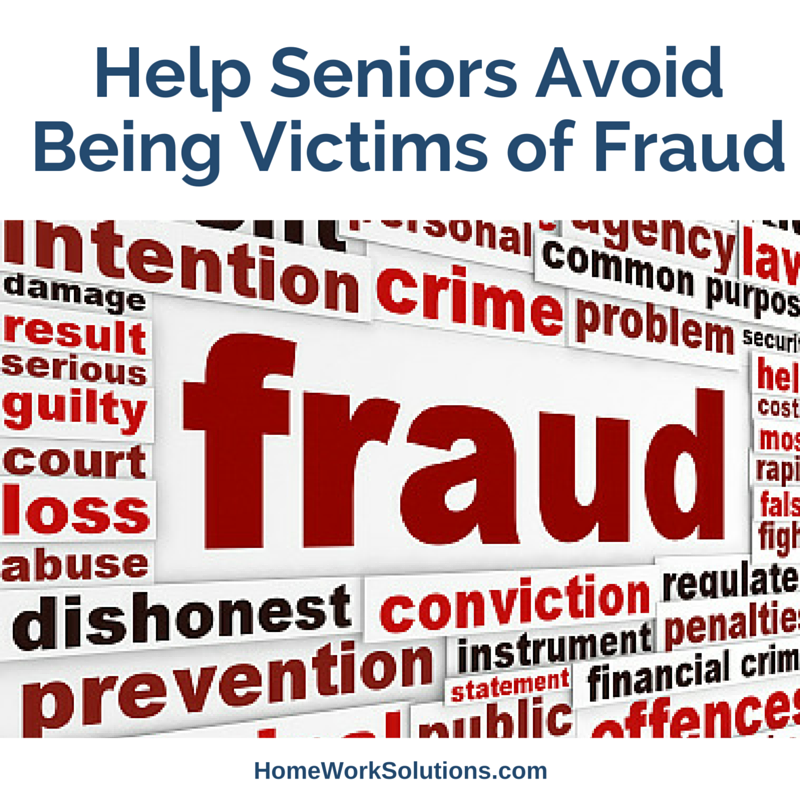
Being a victim of fraud can be an incredibly unnerving and stressful time, but when it happens to a senior citizen, it can be even more devastating. Senior scams are on the rise and can result in billions of dollars for thieves, simply because seniors are often trusting and the scams usually apply directly to them. In addition, crooks tend to target the elderly because these people generally have a lifetime of saved income, pensions, or Social Security checks that they can tap into. Seniors may be easily fooled or confused by a smooth talking thief. Fifteen years ago, the United States Senate Special Committee on Aging reported that there was $40 billion in losses in telemarketing fraud alone, a number that has steadily climbed over the years according to a recent article in US News and World Report. In fact, there are now elder crime units in various police departments in parts of the country in the effort to protect senior citizens from mistreatment, including fraudulent scams. So, how can you protect senior citizens from becoming a victim of fraud?
The more you know the better off you are.
Knowledge is power and that means that you should keep the senior citizens in your life informed about scams that are happening, including telemarketing or health insurance fraud. Here are some of the basic things to know about the most common fraudulent senior scams.
Must-knows about health insurance fraud:
- Don’t sign blank insurance claim forms and don’t give blanket authorization to a medical provider to bill for services received.
- Always be sure to ask medical providers what the costs are and what out of pocket expenses are.
Must-knows about telemarketing fraud:
If you hear things like “you’ve won a free prize or vacation” or “you have to act now or the offer expires”, then it’s likely not a real offer. Or, if there are statements like “you must send money, a credit card number, social security number, or your bank account number”, be very cautious, as this is a common way that seniors are tricked into handing over their hard earned money.
Must-knows about fake prescription drugs:
Be sure to look at the packaging very carefully to be sure that it looks the same as other prescriptions. If there are significant changes to the numbers or packaging, or if the conditions aren’t improving, be sure to talk to the doctor or pharmacists to verify its authenticity.
Must-knows about in-home senior care services:
There are many services who will help you staff senior care in the home. They are not all the same! These caregivers are employees - either of the agency or of the family hiring the services. Make sure you know whether an agency employs the caregivers, or simply refers them. Either option is fine, you simply need to enter the relationship informed. If you are obtaining care through a senior caregiver referral registry, HomeWork Solutions' household payroll services will simplify your payroll tax compliance and keep you on the right side of the IRS.
If you are a senior caregiver or have an elderly loved one, be sure you discuss the scams that are happening now and communicate with them on how they can stay alert to people out to cause harm. The US Department of Justice has many helpful resources and links on it's Stop Fraud website.

